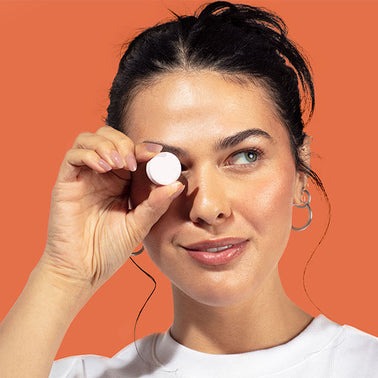As published on Health News Digest
by Claudia I. Martinez, MD
As our awareness of new viruses and bacteria grows, so does our interest in protecting ourselves from their harms.
The onset of COVID-19 has had a significant impact on our lives, and for many, has dramatically affected physical, emotional and mental health. Feelings of stress, anxiety and isolation have disrupted fitness routines, careers, family life and -- in some cases -- changed overall perspectives about health and wellness. Overcoming hurdles related to this disruption in our everyday lives has been a tough hill to climb and many of us have not been able to get back on track with our goals.
As a physician, I have witnessed patients, friends and colleagues experience many personal, social and emotional setbacks as a result of the pandemic or other life challenges. And I’ve experienced these tumultuous times myself. Because before I was a doctor, I was a patient. During my first year of college, I was diagnosed with Chiari Malformation (a condition in which the lower part of the brain abnormally extends into the spinal canal) and Syringomyelia (the development of a fluid-filled cyst within the spinal cord). As a result of these health conditions -- instead of asserting my independence as a young adult and experiencing everything university had to offer -- I spent the better part of my early college years in and out of the hospital. I’ve had multiple brain surgeries, feeding tube surgeries, procedures, tests and suffered complications that temporarily prevented me from doing basic everyday activities, like walking, bathing, eating and dressing myself. During my undergraduate years and entrance into medical school, I had numerous people tell me to give up, quit school and not attempt to achieve the lofty goals I set out to accomplish. But having “doctor” in front of my name -- and specifically helping people during their most vulnerable times -- was always a dream of mine. So, despite everything I had going on with my health and the challenges I had to overcome on a daily basis, I was able to attend and complete medical school. I was forced to make adjustments, but I never wavered on the path to achieving my ultimate goal of becoming a physician. Today, I help care for individuals just like me, in the same hospital where I spent so much time as a patient.
Overcoming challenges or dealing with major life interruptions can be stressful and have both emotional and physical impacts. Fortunately, with the right tools in place, managing external and internal stressors does not always have to be an uphill battle. Whether you’re dealing with mental health or physical challenges related to COVID, or struggling with other hurdles in your life, there are ways to stay positive and motivated. Here are a few things that have helped me through my journey:
Stay connected: Quality, meaningful personal relationships have the ability to improve mood and can provide necessary support during difficult times. Make sure you have friends and family close and communicate with them often. With my busy schedule, it is easy to lose track of time and isolate myself with work, but I make an effort to have dinner with my parents every other week. My husband and I love to spend weekend mornings together sitting outside, without electronics, and reflect on life. And every couple of months my group of friends -- most of whom I’ve known since elementary school -- tries to get together. Although it requires effort to maintain and consistently nourish friendships when everyone is busy, human connection is an important and critical part of managing our mental health.
Set goals: Setting goals can help refine focus, trigger new behaviors and maintain the momentum necessary to meet desired objectives. Goal setting is not only an important way to manage time and energy, but it can also improve mental health. I write every goal I have down on paper, and I don’t remove it until it is achieved. My goals can range from something as minor as “call to make a dentist appointment” to more ambitious goals, like “develop and execute a research project and submit for publication.” Writing it down helps clear my mind and seeing it everyday keeps me accountable. Crossing things off the list is a great feeling!
Learn and practice healthy habits: Taking care of your body from the inside out will help build a strong foundation that will make it easier to manage some of the physical demands related to stress. This means proper nutrition, staying hydrated and adequate rest. Listen to your body, and give it a break when needed. Eat whole foods and make sure you drink plenty of fluids. Since it’s not always easy to incorporate 8 glasses of water during the day, I use Hydralyte, a rehydration solution that hydrates 2-3 times faster than water alone. At one point during my rehabilitation, I was dependent on IV fluids through a port in my chest. The inclusion of Hydralyte gave me back my independence from the IV fluids -- and I still use it everyday.
Be flexible: No situation or feeling is forever. Learn to adjust and adapt to circumstances and modify behaviors accordingly. If I gave up every time someone told me that my health conditions would prevent me from ever effectively being able to take care of patients as a doctor, I would not be in the place I am today.
I still have days where I struggle with my health, and this definitely impacts my mood. And I have to remind myself that this is normal. Even in lieu of a significant or compelling life disruption or change, like COVID-19, there will be days where all of us will struggle to cope with difficulties. But with a positive mindset, the guidance and support of others and a focus on goals, it is possible to overcome challenges and look ahead to a more positive future.










